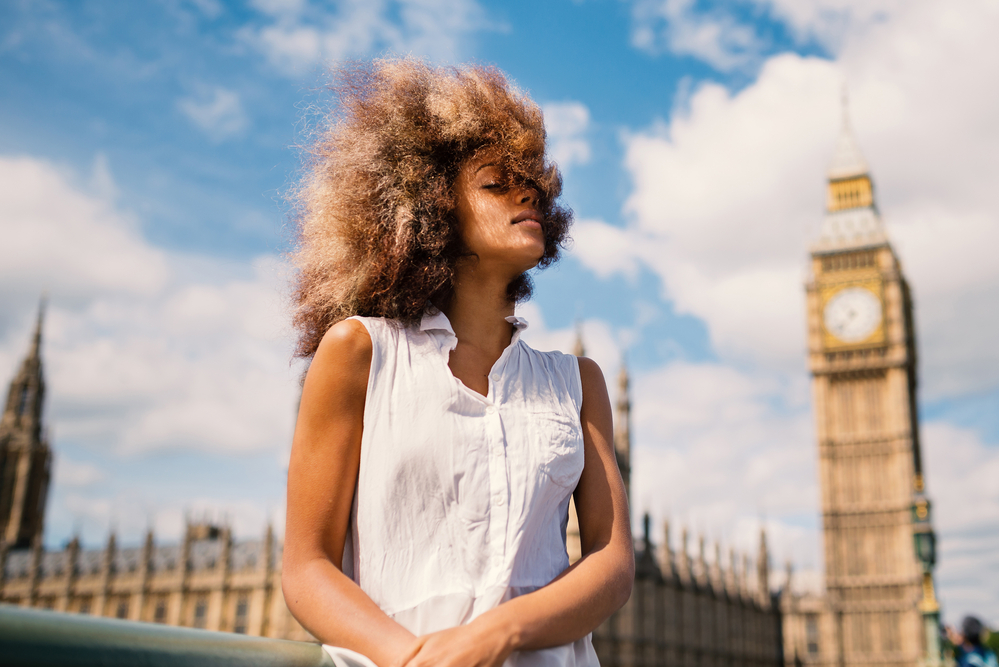
When most people think of henna, they imagine elaborate tattoos and body art. But that's not all it's useful for – it's now a versatile hair care remedy that's gaining considerable traction in the natural hair community.
Yet, uncertainty exists surrounding whether it's good for your hair. So, if you're considering using henna on your hair but have some reservations about it, we can help. In this article, we'll tell you for sure whether henna is bad for your hair.
Table of Contents
Is Henna Bad for Your Hair?
Henna is not bad for your hair. The benefits of using pure henna greatly outweigh the few risks. However, to protect yourself and the health of your hair, always use the purest henna you can find.
Natural henna powder can be used as a natural hair dye, color depositing shampoo and conditioner, hair spray, hair mask, dandruff treatment, and much more.
You’ll often hear people refer to henna as “natural henna,” “natural henna powder,” “black henna,” “pure henna,” and many other names. In the next section, we’ll discuss how pure and natural henna can be used to dye hair and much more.
What Is Henna?
Henna, also known as Lawsonia inermis, is a powder harvested from an ancient tree that originated in Egypt. The tree's branches are left outside to dry, and then the leaves are ground into a fine powder.
The natural henna powder was traditionally used to dye fingernails and clothing, but its uses have multiplied exponentially over the years, and now it's touted as a multi-functional hair miracle.

Henna’s Hair Care Uses
The henna plant has many uses when it comes to everyday hair care. In this section, we will explore how naturals are taking advantage of this miracle tree.
Natural Hair Dye
Egyptians have used henna as a hair dye since ancient times, and the tradition continues to live on. Naturals use henna dye as a natural alternative to chemical hair dyes to preserve their hair's health.
Moreover, most henna hair dye treatments are comparable to standard semi-permanent dyes in that they last at least four weeks.
Since henna has a specific, natural pigment, it only darkens hair and produces orange, red, or brown tones. Still, based on the current color of your hair, the results of henna dye may vary.
You can make your own hair dye right at home using pure henna powder. To dye your hair with henna, simply mix the henna powder with water to form a thick paste (according to the instructions on the henna packaging).
Then, apply the treatment to your hair, allow it to sit for a few hours, rinse, and condition as usual. But if you want to skip the mixing process, you can always use a pre-made henna dye.

Color Depositing Shampoo & Conditioner
Many people rely on chemical treatments to revamp their color when it begins to fade. Unfortunately, the overuse of chemical-based color treatments severely damages the hair.
For this reason, hair product brands have started using henna in shampoos to revive and protect hair color.
Henna shampoos contain varying amounts of henna extract and are safe for virgin and chemically treated hair. Using a color-depositing henna shampoo is quicker and easier than dyeing and can be done multiple times to deposit or maintain hair color.
A quick lather and rinse with a bit of henna shampoo will have you on your way to shinier, brighter tones.
Like henna shampoo, henna conditioner is formulated to preserve and enhance color. In addition, henna conditioner repairs hair strands damaged by styling and chemical treatments.
You can use these products daily to improve your curls' bounce and manageability. For the best results, you should allow the conditioner to sit for at least 10 minutes for maximum color and nutrient penetration.

Hair Spray
Henna hair sprays are effective in making your hair look and feel healthier. These products often combine henna extract with proteins to strengthen the hair while maintaining moisture for noticeable shine.
Additionally, henna sprays can repair the outermost layer of the hair, called the cuticle, to improve hair's elasticity. Use it daily to refresh your curls and maintain hairstyles between washes.
Hair Mask
Henna-infused hair masks nourish the hair, boosting its overall health while preserving its pigment. They also shield the hair from environmental damage. The result is soft, moist hair that's less prone to frizz and breakage.
Unlike standard hair masks, henna masks are ultra-concentrated and designed to be left on the hair for an extended amount of time.
You can leave it on your hair for anywhere from 10 minutes to 8 hours in most cases. For the best results, the hair should be covered with a plastic cap to unleash the full healing power of the mask.

Benefits of Henna for Hair
Naturals gravitate toward henna as a natural alternative to chemical hair products because of its transformative benefits. Regardless of the current state of your hair, this ingredient can take your tresses to the next level. Read on to discover the remarkable benefits of henna for hair health.
Treats Dandruff
Dandruff is a pesky hair and scalp condition characterized by dryness, itching, and flaking. This condition initiates a domino effect causing other hair issues such as buildup, inflammation, and breakage.
Dandruff can be caused by scalp irritation from products, hormonal changes, and other conditions that are often difficult to identify.
Henna has anti-fungal properties that eliminate dandruff at its source, namely the scalp. DIYers can treat dandruff at home by mixing pure henna powder with ingredients such as lemon, oils, and even eggs to form a paste.
The paste is then distributed throughout the hair and washed out after about 30 minutes. The result is flake-free, light, lustrous curls.
Chemical-free Dyeing

Since more people are becoming mindful of safer ways to color their hair, henna is now replacing standard dyes.
And because henna is plant-derived, unlike traditional hair dyes, it doesn't require any artificial additives or chemicals to add pigment to the hair. Additionally, henna hair dyes are gentler and won't break down the protective layers of the hair shaft like most dyes and bleaches.
Softens Hair
Dryness, breakage, and split ends are the most troubling natural hair issues. And sometimes, even the best hair products on the market are useless for severely damaged hair. However, henna is an excellent solution for those who struggle with these issues.
Through regular use, henna treats dryness and prevents it from coming back. It has vitamin E, which aids in moisturizing the hair, as well as proteins and antioxidants that strengthen the hair to lock in that moisture.
Risks of Using Henna on Hair
Although henna has numerous benefits, you should be aware of some risks of using this ingredient. This section will explain the disadvantages of using henna as part of your hair care routine.

May Contribute to Hair Loss
Some people have complained about hair thinning and hair loss after using henna-containing products. But in these cases, henna was never identified as the direct cause of hair loss (or hair fall in some cultures).
So, if you regularly use henna, you likely won't have to worry about losing your hair. Just be aware that the risk is always present.
May Come Across Imitation Henna
Some hair product brands have gotten away with using imitation henna and claiming their product is 100% pure and natural henna.
It is difficult to crack down on these companies' false advertisements with regulations varying in different countries. Furthermore, the side effects of imitation henna are unknown, which endangers consumers who unknowingly come across a knock-off.

May Cause Allergic Reactions
Many people have allergic reactions to plants and other natural ingredients, including henna. Allergic reactions to henna include symptoms such as hives, rashes, burning, and swelling. These reactions can happen to anyone, though they are uncommon.
- How To Use Henna for Hair Growth
- How to Dye Your Hair With Coffee Grounds
- Cruelty-free Hair Coloring Treatments
- Does Henna Expire?
Henna is an ancient treasure with unmatched versatility. With very few drawbacks, this ingredient is safe and easy to incorporate into your daily hair care routine. We hope this article helped to ease your concerns and encourages you to give henna a try.




